The Assisted Dying Coalition represents a group of organisations within the UK and Crown Dependencies that advocate for the legal recognition of the right to die. We aim to legalise assisted dying for individuals who are terminally ill or facing incurable suffering and have expressed a clear and settled wish to end their lives.
This article provides an overview of the latest progress and updates regarding assisted dying legislation in different regions.
England & Wales
The Health and Social Care Committee is presently conducting an inquiry into assisted dying. The committee received an overwhelming response from the public, with over 63,000 submissions, along with nearly 300 written responses from experts and organisations. Humanists UK and My Death, My Decision have also provided written evidence to the inquiry.
Initial findings from a public survey and insights gained from a fact-finding visit to Oregon have already been published by the committee. They have also heard oral evidence from a diverse range of international experts. Although the report publication timeline remains uncertain, we anticipate that it will not make a definitive recommendation either for or against reform.
No assisted dying Bills are currently progressing through Parliament, and there are unlikely to be any prior to the next general election.
Scotland
Liam McArthur MSP has secured the right to introduce the proposed Assisted Dying for Terminally Ill Adults (Scotland) Bill. The drafting process for this bill is currently underway, and it is expected to be introduced to the Scottish Parliament later in 2023.
As the consultation document highlighted, the proposed bill in Scotland is set to be the most comprehensive ever presented, addressing the complex and challenging issues that previous bills did not adequately cover. McArthur and his team have received support from a medical advisory group comprising experts in various disciplines, including palliative medicine, mental capacity, public health, and pharmacology. Additionally, international stakeholders have been consulted to ensure evidence-based policymaking.
Once introduced, the bill will undergo scrutiny by a lead committee, which will consider oral and written evidence. The committee will then publish a report on the proposal prior to the Stage 1 vote in the chamber. If the bill secures a majority, Stage 2 will involve amendments, and Stage 3 will be the final stage leading to the bill’s submission for Royal Assent. Supporters in Scotland can voice their support for legal reform by contacting their MSPs using the Humanist Society Scotland’s dedicated tool.
Jersey
In November 2021, Jersey made the historic decision to support assisted dying ‘ in principle’. However, the timeline for this process has been subject to delays. The States assembly was initially scheduled to discuss detailed proposals in May 2023, but this is now anticipated to occur in 2024 or 2025, with the actual law yet to be drafted.
The assembly produced “detailed proposals” which seemed robust, sensible and a positive step forward. End of Life Choices Jersey and members of the ADC welcomed certain aspects of the proposals but warned against imposing additional burdens and delays on those experiencing unbearable suffering compared to individuals with a terminal prognosis.
The States subsequently issued a feedback report in April 2023 summarising the received input. However, it did not outline how they intend to refine the proposals. Surprisingly, an additional consultation, termed an “Ethics Review,” has now been introduced. Details about the purpose and stakeholders involved in this review remain undisclosed.
The timetable going forward is now said to be as follows:
- May 2023: Proposals to be refined using consultation feedback
- June 2023: Council of Ministers to agree refined proposals
- Summer 2023: Ethics review on proposals undertaken
- Autumn 2023: Proposals to be further refined using ethics review
- December 2023: Lodge proposals for debate
- February 2024: States Assembly debate
- March 2024: Law drafting to begin, if proposals approved by States Assembly
Isle of Man
On June 23, the First Reading of the Isle of Man’s Assisted Dying Bill took place in the House of Keys, the island’s lower house. Earlier that day, members of Tynwald attended a briefing by Trevor Moore, Chair of My Death, My Decision. During the briefing, Trevor emphasised the inclusion of people suffering intolerably from incurable illnesses in the Bill, which currently covers only those with a six-months prognosis. It is hoped that the eligibility criteria can be expanded at the amendment stage. The Second Reading of the Bill is expected in October.
Outside the UK and the Rest of the world
In Ireland, an all-party Joint Committee with a time-bound mandate was launched on June 13 to examine the issue of assisted dying. Over the course of nine months, this committee will thoroughly evaluate the subject and present recommendations on whether to proceed with assisted dying legislation by March 2024. Given that a general election is scheduled for March 2025, it is crucial to make progress within the current government’s term. End of Life Ireland (EOLI) and Irish Doctors Supporting MAiD (Medical Assistance In Dying) have jointly organised public information meetings across the country, which will resume in September 2023.
In France, President Macron is expected to introduce assisted dying legislation soon. A Citizen’s Convention overwhelmingly voted in favour of reforming France’s end-of-life laws.
In Portugal, assisted dying was legalised in May. It was approved by parliament four times after repeated vetoes from the president.
In Slovenia, enough signatures were collected in June to table an assisted dying bill.
Note: The information provided in this article reflects the current state of affairs up to July 2023 and may be subject to further changes and updates.

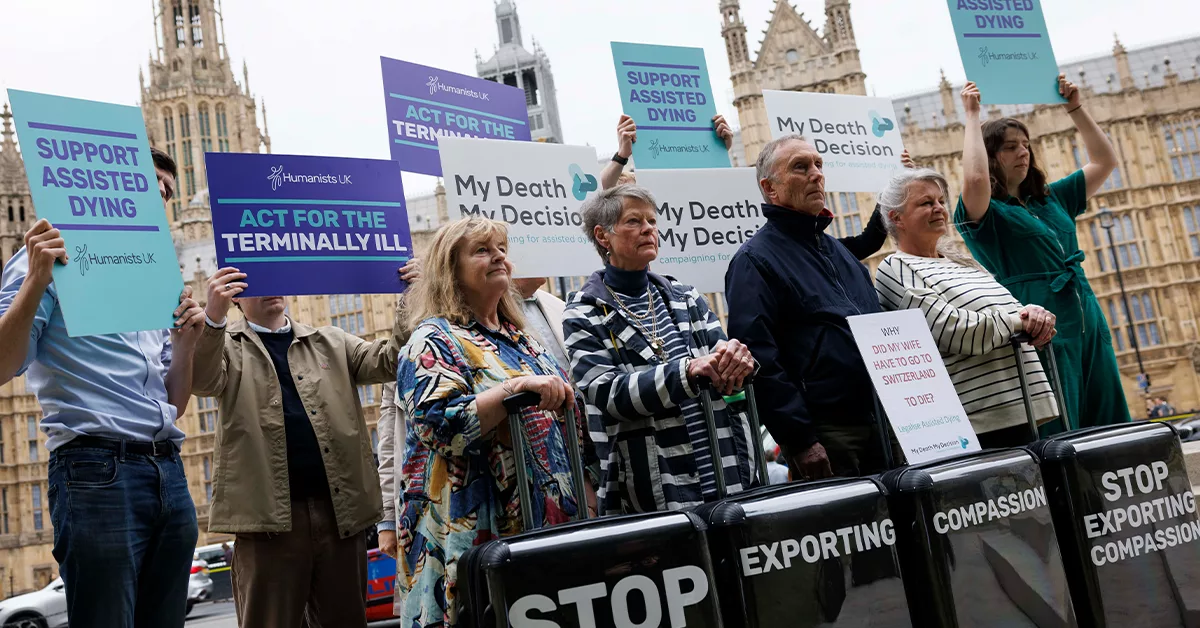
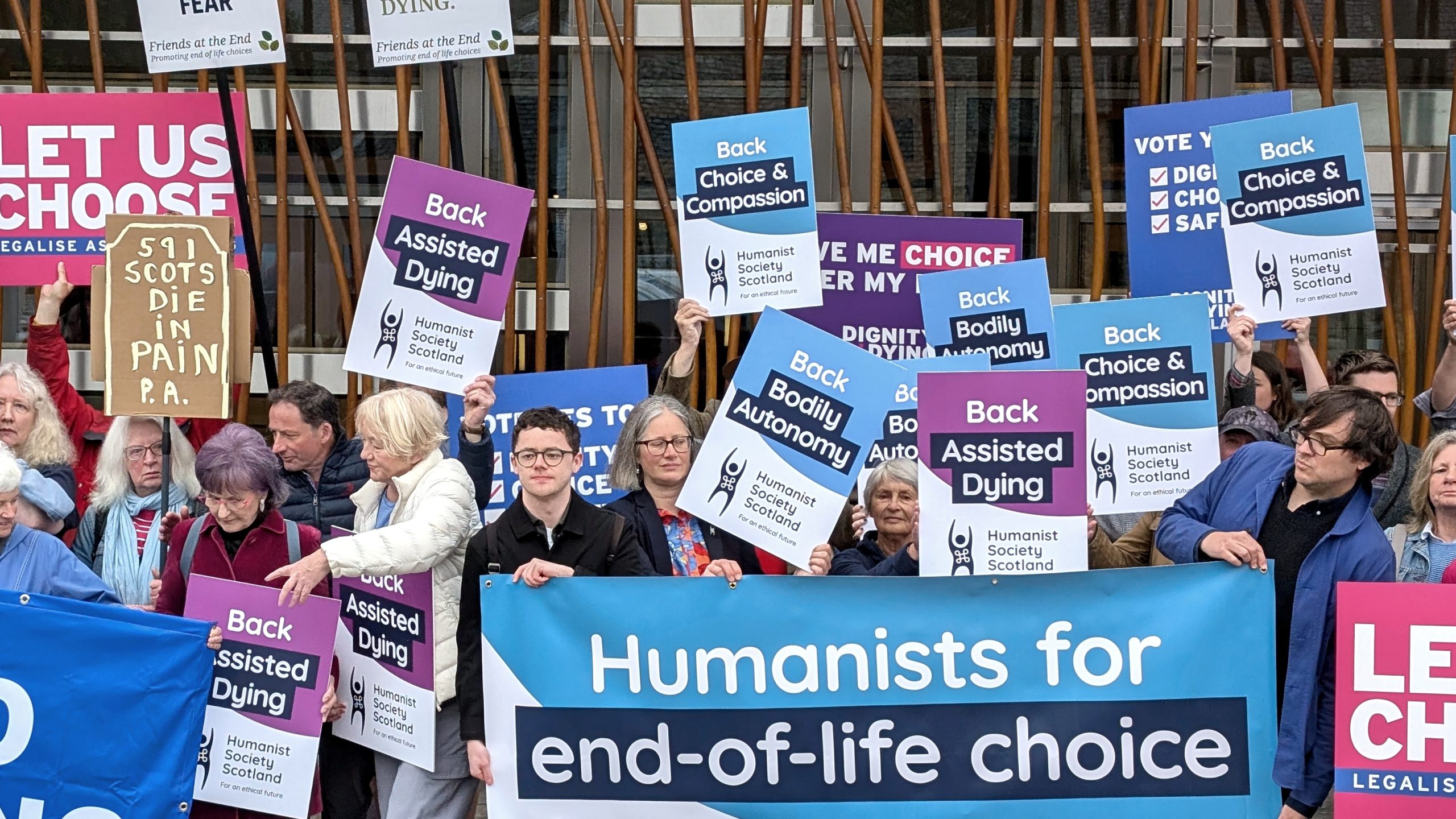 The Scottish Parliament has voted in favour of the Assisted Dying for Terminally Ill Adults (Scotland) Bill. Members of the Assisted Dying Coalition have welcomed the vote.
The Scottish Parliament has voted in favour of the Assisted Dying for Terminally Ill Adults (Scotland) Bill. Members of the Assisted Dying Coalition have welcomed the vote.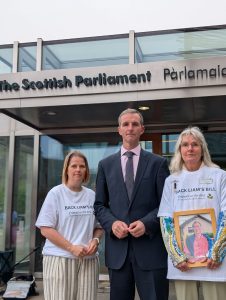 Emma Cooper, Convenor of Friends at the End, said:
Emma Cooper, Convenor of Friends at the End, said: Glasgow-based Kevan Donoghue died at age 64, 18 months after a shock diagnosis of a rare bile duct cancer. Suffering from constant pain, Kevin died after not eating or drinking for three weeks as a result of his illness. His wife, ex-nurse Patricia Donoghue, suffers from PTSD following her husband’s death.
Glasgow-based Kevan Donoghue died at age 64, 18 months after a shock diagnosis of a rare bile duct cancer. Suffering from constant pain, Kevin died after not eating or drinking for three weeks as a result of his illness. His wife, ex-nurse Patricia Donoghue, suffers from PTSD following her husband’s death. 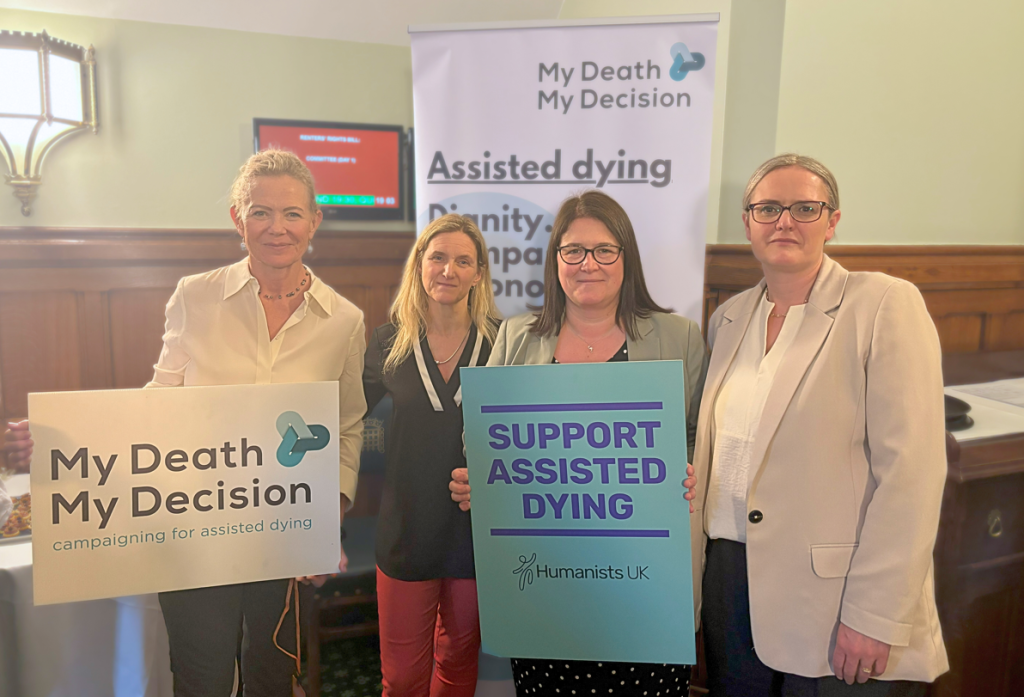
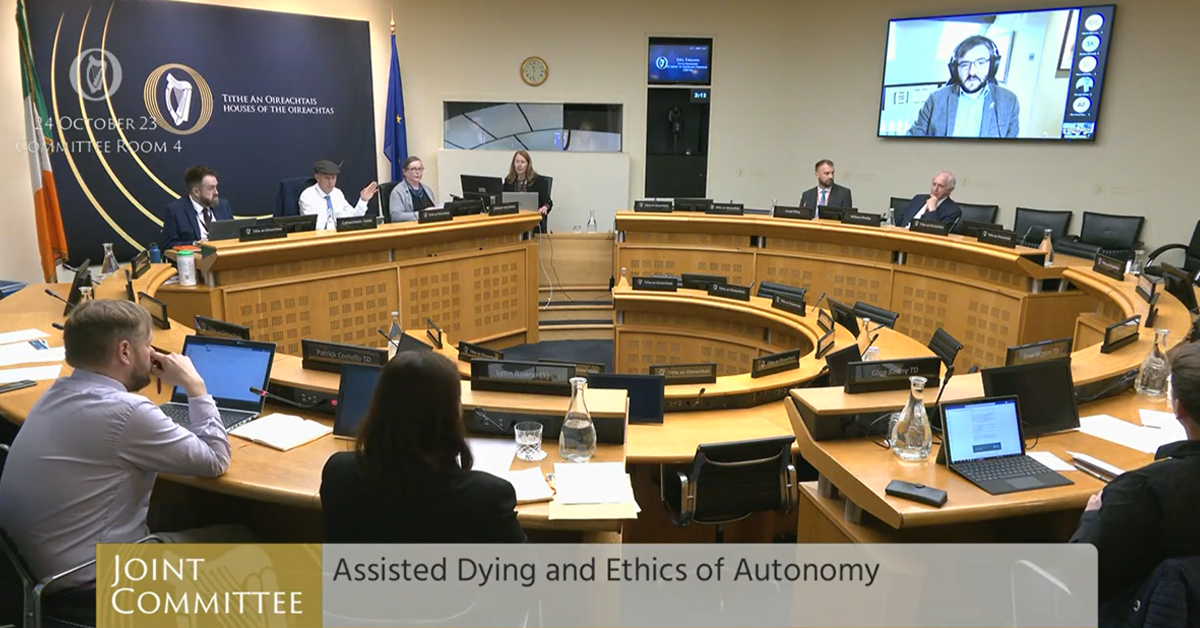
 Table 2 UK Residents with neurological diagnoses receiving an assisted death in Switzerland
Table 2 UK Residents with neurological diagnoses receiving an assisted death in Switzerland


